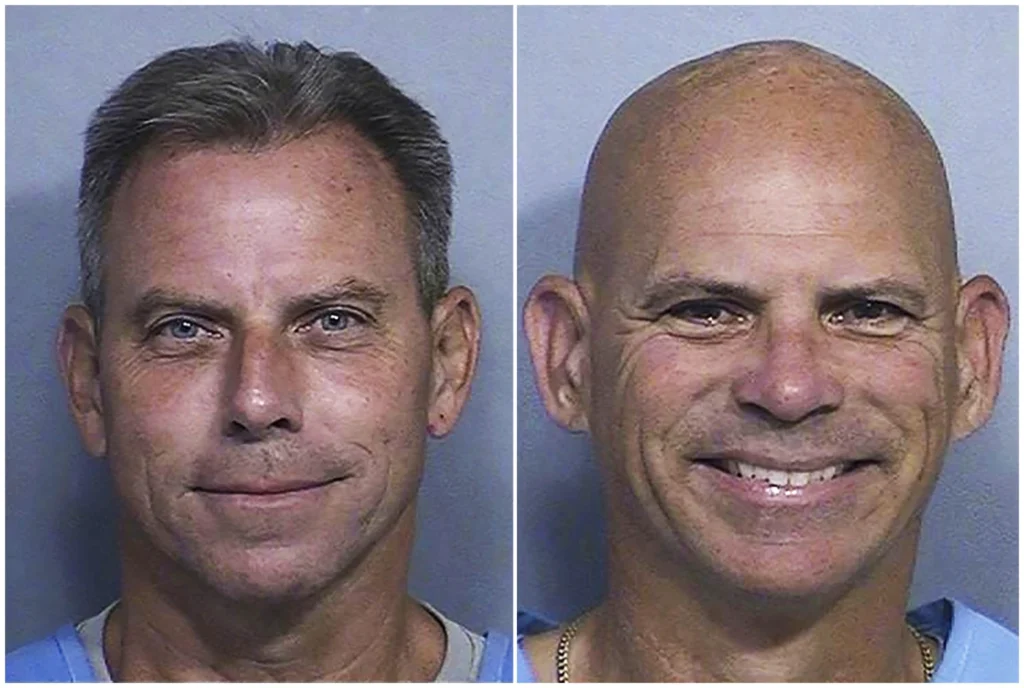LOS ANGELES — After 35 years behind bars for the 1989 murder of their parents, Erik and Lyle Menendez are a step closer to freedom. On Tuesday, a Los Angeles County judge reduced their sentences, making them immediately eligible for parole.

Superior Court Judge Michael Jesic ruled that the brothers’ punishment would be reduced from life without parole to 50 years to life, allowing for parole board consideration. The decision followed emotional statements from both brothers and testimony from family members who have supported their release for years.
“On Aug. 20, 1989, I killed my mom and dad. I make no excuses and also no justification,” said Lyle Menendez, his voice breaking as he addressed the court remotely. “The impact of my violent actions on my family … is unfathomable.”
The hearing, originally scheduled to last two days, concluded within hours, with Jesic announcing his ruling shortly after the Menendez brothers spoke.
The brothers were convicted in 1996 of murdering their father, José Menendez, a wealthy music executive, and their mother, Kitty Menendez, in their Beverly Hills mansion. At the time, Lyle was 21 and Erik was 18. The case quickly became a media spectacle.
While prosecutors alleged a motive of financial greed, pointing to the brothers’ access to a multimillion-dollar inheritance, defense attorneys argued they were driven to commit the murders after years of sexual and psychological abuse by their father. This claim has remained central to their defense and long fueled public debate about justice, trauma, and accountability.
Tuesday’s decision followed months of opposition from prosecutors, who argued the brothers had failed to fully accept responsibility. Although prosecutors participated in the hearing and cross-examined defense witnesses, they did not present new testimony.
By contrast, the defense called numerous supporters, including family members, a former inmate, and even a former judge, all of whom testified to the brothers’ rehabilitation and character growth.
“We all, on both sides of the family, believe that 35 years is enough,” said cousin Anamaria Baralt. Another cousin, Diane Hernandez, spoke about abuse she witnessed firsthand when she lived with the Menendez family, reinforcing the defense’s longstanding claims.
Erik Menendez, also addressing the court, offered a tearful apology. “You did not deserve what I did to you,” he said to his family. “But you inspire me to do better.”
From Life Without Parole to a Second Chance
Though defense attorney Mark Geragos pushed for the charges to be reduced to manslaughter, which could have led to immediate release, Judge Jesic stopped short.
“I’m not saying they should be released; it’s not for me to decide,” Jesic said. “But I do believe they’ve done enough in the past 35 years that they should get that chance.”
Their next chance comes June 13, when the brothers will face the California parole board for a risk assessment, a process initiated by Gov. Gavin Newsom to inform a potential clemency decision.
A notable element in the judge’s decision was a letter from a prison official, who for the first time in his 25-year career advocated for resentencing, praising the Menendez brothers’ leadership and rehabilitation behind bars.
Over the decades, the brothers have earned college degrees, facilitated self-help classes, and established support programs for fellow inmates. Supporters point to their conduct as proof of meaningful reform.
Former inmate Anerae Brown, now a free man, became emotional as he described how the Menendez brothers helped him turn his life around. “Without Lyle and Erik, I might still be sitting in there doing stupid things,” he said.
Former District Attorney George Gascón opened the door to resentencing in 2023, citing the brothers’ transformation in prison and evolving understandings of childhood trauma and abuse.
Geragos, speaking outside the courtroom, praised the ruling. “They are a real family. Real people who have lived through unimaginable horrors,” he said. “And I’m hopeful and glad that we’re one huge step closer to bringing the boys home.”



